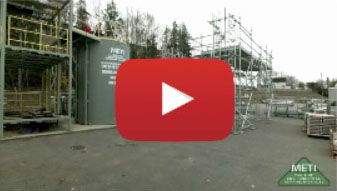Call Today! 902-539-9766
Email: training@metiatlantic.com
Earthmoving Individual Course Descriptions
- Home
- Earthmoving Individual Course Descriptions
Wondering what the course will include. Listed below is a description of each course in the Earthmoving Operator Program.
Air Brakes Training
This course provides information on laws regulations and correct procedures required to drive a vehicle equipped with an Air Brake System. After completing this module, the student and will write the Nova Scotia Registry of Motor Vehicles Air Brakes Test to receive an Air Brakes Training Certification.
Class 3 Driver Training
Train in the safe and effective operation of Class 3 vehicles. Your will take your driving test with our accredited driver examiner. Topic covered will provide the student with knowledge to have a comprehensive understanding of the trucking industry and its importance to our economy, the rules and regulations under which the trucking industry operates as well as safe driving techniques in a professional field.
Cargo Securement and Handling Training
You will learn safe techniques for the loading and securing of specific types of commodities; learn to inspect secured loads for compliance with the North American Cargo (NSC) Securement Standard.
Professional Driver Improvement Course (PDIC)
PDIC helps professional drivers improve their defensive driving techniques. Learn how to prevent collisions, deliver cargo safely and on time, reduce costs and maintain good driving habits. Delivered through the Canada Safety Council.
WHMIS GHS
(Workplace Hazardous Materials Information System – Globally Harmonized Standard)
In this training you will be able to distinguish many elements of the “old” WHMIS from the “new” WHMIS: when and how to use a material safety data sheet and a safety data sheet; the “old” symbols from the “new” pictograms; the “old” hazard classes from the “new” hazard classes; GHS hazard groupings and building block concept.
Occupational Health & Safety Act, OH&S (NS) Training
You will review relevant elements of the Occupational Health and Safety Act while discussing the standards that should be followed for creating a safe and healthy work environment.
Standard First Aid CPR-C & AED (CSA Intermediate) Training (2 Day)
This is a St John Ambulance First Aid course. Students will learn the roles and responsibilities of a FIRST AID provider. They will become familiar injuries and medical emergencies. Standard First Aid and CPR courses include AED training.
Power Line Hazards Training (Workplace NL)
Identify the hazards associated with working near power lines. Refer to the relevant provincial regulations and types of controls that can be utilized to prevent loss.
Transportation of Dangerous Goods (TDG)
Students are provided with the knowledge to an understand the regulations and proper procedures for shipping, receiving and transporting (by road) dangerous goods; the use of TDG Regulation Schedules; determine the classifications of dangerous goods, mark and label small means of containment; selecting display placards for large means of containment.
Confined Space Entry
Gain a better understanding of what it means to be an attendant, entrant or a supervisor and the responsibility of each. Each student should have the knowledge to evaluate the hazards and understand the need for personal protective equipment as well as proper permitting. The students should be aware of the potential hazards as well as the associated safety requirements and legislated regulations.
ESC Basic Safety Orientation (BSO)
Gain a general awareness of critical safety initiatives found at participating ESC Member work sites. You will be able to present the ESC BSO credential to any of the Energy Safety Canada Owner Member sites (Albian Sands Energy Inc., Canadian Natural Resources Ltd., Suncor Energy Inc., and Syncrude Canada Ltd.) as proof of completing the required pre-site access orientation.
Construction Safety Training Systems (CSTS)
You will have this pre-entry requirement for many construction industry work sites.
ESC Fall Protection Training
Learn the principles of fall prevention and protection. Train with different types of fall protection systems and become aware of the most appropriate use for each type.
ESC Confined Space Entry & Monitor Training
Train in the hazards associated with entering and working in confined spaces. Learn the methods of controlling associated hazards.
H2S Alive (Hydrogen Sulfide Training/ Energy Safety Canada)
Understand what H2S is, its dangers, how to work safely in and around H2S environments, the physical properties and health hazards of H2S and the importance of a rescue plan.
Ground Disturbance 201
Provides the knowledge required to develop, plan and implement any kind of ground disturbance in a safe and effective manner.
Trenching & Excavating
Students are instructed in the knowledge of regulations of trenching and excavating; safe practices and procedures for working trenching operations and how to apply practical procedures to thoroughly evaluate all potential hazards on each job site before starting a job.
Intro to Heavy Equipment
Students are introduced to heavy equipment terminology and safety practices required to safely operate a range of heavy equipment on the worksite. They will learn to understand how the machinery operates and what makes the equipment work.
Backhoe Loader Operation Loading and Maintenance
Learn to understand the rules for safely operating this equipment. Students will be required to describe the safe pre-start check, startup routine, maneuvering and shutdown procedures for a backhoe. loading and unloading a backhoe. Backhoe Operation provides a combination of learning exercises where the student observes instructor led operation techniques and then are given hands-on time with the equipment to develop their skills on the backhoe.
Excavator Operation, Loading and Maintenance
Students are provided with an understanding of the rules for safely operating an excavator; describe the safe pre-start check; start-up routine; maneuvering and shutdown procedures; loading and unloading an excavator. Excavator Operation provides a combination of learning exercises where the student observes instructor led operation techniques and then are given hands-on time with the equipment to develop their skills on the excavator.
Dump Truck Operation
Students will participate in a combination of dump truck driving and driving observation in off-road environments. Students are given individual instruction and participate in driving, loading and dumping activities.


